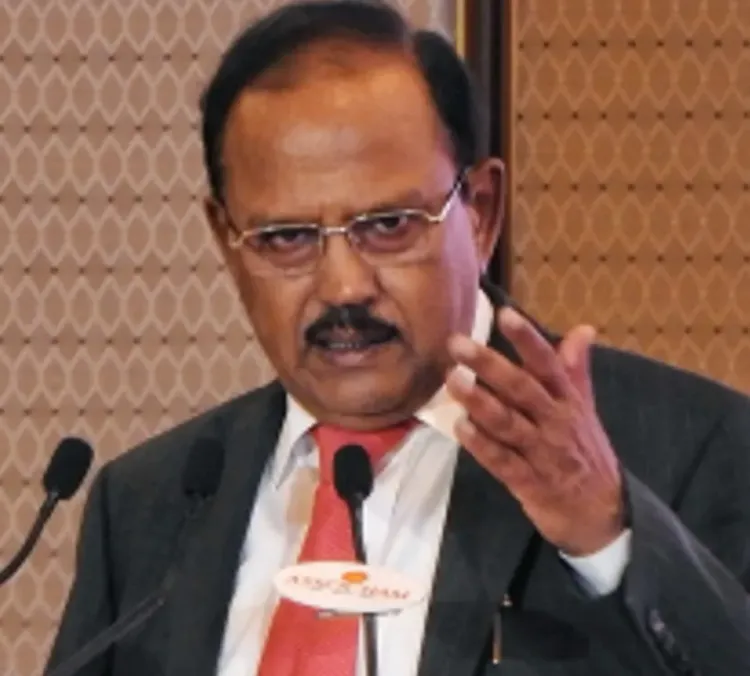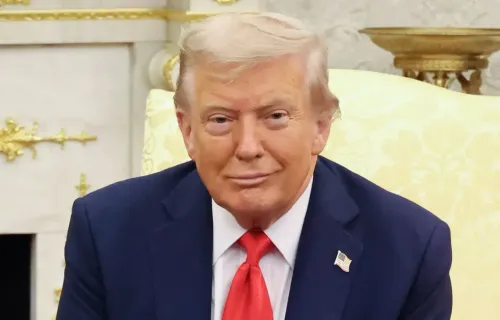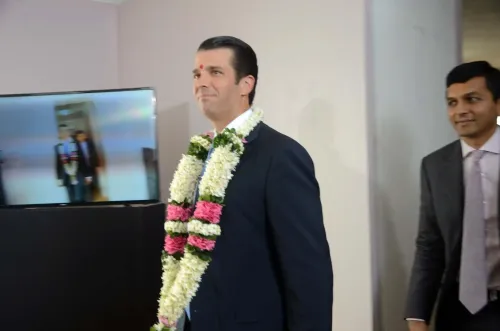What Actions Did India Take Against Terror Camps in Pakistan?

Synopsis
Key Takeaways
- NSA Ajit Doval briefed US officials on Indian military actions.
- Operation Sindoor targeted known terrorist camps only.
- No civilian or military targets were hit in Pakistan.
- The operation was a response to the Pahalgam terror attack.
- International leaders urge restraint between India and Pakistan.
New Delhi, May 7 (NationPress) NSA Ajit Doval engaged in a conversation with US Secretary of State Marco Rubio, providing insights on the operations executed during ‘Operation Sindoor’ by the Indian Army targeting locations within Pakistan, in response to the Pahalgam terror attack.
According to the Indian Embassy in Washington, shortly after the military actions, NSA Doval updated both the US NSA and Secretary Rubio about the measures taken. The Embassy also pointed out that India possesses credible leads, technical data, survivor testimonies, and additional evidence indicating the direct involvement of terrorists based in Pakistan in this incident.
“It was anticipated that Pakistan would respond against terrorists and the supporting infrastructure. However, over the past two weeks, Pakistan has resorted to denial and falsely accused India of orchestrating a false flag operation,” stated the Embassy.
The Indian response has been described as focused and precise, designed to avoid escalation. “No civilian, economic, or military sites in Pakistan have been targeted. Only known terrorist camps were struck,” emphasized the Indian Embassy.
Earlier, the Indian Army reported successfully hitting nine locations deep within Pakistan as a retaliation for the Pahalgam terror attack.
“Recently, the Indian Armed Forces initiated ‘Operation Sindoor’, targeting terrorist infrastructure in Pakistan and Pakistan-occupied Jammu and Kashmir, which have been pivotal in planning and executing attacks against India,” the army announced in a press release.
On its official X handle, the Indian Army declared, “Justice has been served. Jai Hind.”
“In total, nine sites were targeted. Our actions have been composed, calculated, and deliberately non-escalatory. No Pakistani military establishments were affected. India has shown significant restraint in both target selection and execution methods,” the army stated.
These actions follow the heinous Pahalgam terrorist attack where 25 Indians and one Nepali citizen lost their lives.
“We are committed to ensuring accountability for those responsible for this atrocity. A comprehensive briefing on ‘Operation Sindoor’ will be presented later today,” the army confirmed.
Meanwhile, Lt Gen Ahmed Sharif Chaudhry, Director General of the Pakistani Inter-Services Public Relations (ISPR), acknowledged the strikes conducted on Pakistani territory.
“India launched missile strikes at Kotli, Bahwalpur, and Muzaffarabad, labeling these as cowardly attacks amidst rising tensions following a militant assault in occupied Kashmir,” the Pakistani military reported.
The rising tension between these two nuclear nations follows the Pahalgam terror attack which claimed the lives of 26 civilians, primarily tourists.
Earlier, US President Donald Trump remarked that the Indian strikes on Pakistan were anticipated and expressed his hope for a swift resolution. “It’s a shame,” he commented during an unrelated press interaction at the White House. “We just learned about it as we entered the Oval ... They have been in conflict for a long time. ... I just hope it concludes quickly.”
Additionally, UN Secretary-General Antonio Guterres urged both India and Pakistan to exercise “maximum military restraint,” stressing the global imperative to avoid military confrontation between the nations.
Guterres voiced concerns regarding Indian military operations across the Line of Control and the international border, advocating for de-escalation.









